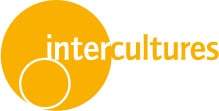
„Never doubt that a small group of thoughtful, committed citizens can change the world. Indeed, it is the only thing that ever has.”
– Margaret Mead, Anthropologist/ Author/ Speaker (d. 1978)
If It’s a Game, Change the Rules
In the global business world as we know it, “we pretend that something is OK, even if it is not. We do not share our feelings of frustration, demotivation,” says Sonja Andjelkovic, Managing Director of intercultures public. “We don’t do that because we’re mean. It’s because we’re scared to be excluded from the game, or to lose the game.” “The game,” as Sonja describes it, “is how we relate to one another as people. It’s not just how much revenue we create.” Her response is to “change the game by changing the rules of the game.”
Many are playing the game of acquiring and accumulating more and more in what some call a VUCA[i] world. While for some people this has resulted in great wealth, others have lost altogether. For this reason—the fast-moving demands of the growth game, that is—the word “crisis” has been used to describe current global developments, such as the movement of more than 1 million refugees into the European Union within a relatively short time in 2015.
As the demand of refugees for protection, shelter and livelihood opportunities suddenly hit the social services provision—and at the same time triggered core socio-economic challenges in Germany—individuals felt a threat to their personal supplies of needs, liberty and opportunity. The demands of the migration seemed to be beyond the scope of what government could manage. Third sector support—that of non-governmental organizations (NGOs)—was sought to help provide various forms of care for, and integration of, refugees.
Solution-Minded
“So of course, everyone was freaking out!,” says Sonja, who has an academic background in Middle Eastern Studies and Social Science. Having worked in a number of Muslim countries[ii] with NGOs, she recognized that it wasn’t the national cultures alone that felt foreign to EU citizens, but the religion [Islam], as well. “Based on my experiences, I could translate in a figurative sense why people had fled; why they behaved the way they did; and what needs to be done to cope with the differences and make them an asset.” She based her trainings and consulting services on these experiences, and supported intercultures’ non-profit clients in the last couple of years with great success. Sonja’s experiences brought her to the conclusion that solutions in response to the shift of populations around our globe require a logic, language, expertise, approach and network altogether different than the frameworks that business offers. This can only be done by a third-sector organization—an non-governmental organization (NGO), for example—that would be eligible to bid for government tenders.
Introducing intercultures public
As a purpose-driven provider and non-profit organization unaffiliated with government, intercultures public operates with a humble posture of service. “We serve those who serve,” says Sonja. “We’re a service provider for the community; for those who provide service to the community, by inspiring and motivating them as they empower themselves.” The raw materials with which intercultures public works are the inequities perpetuated by the growth game: conflicts within society, tension, segregation, marginalization and more. intercultures public’s brand of solutions respond to the public sector truths of the human experience. intercultures public offers intercultural competence training and organizational development to non-profit customers, as well as the Corporate Social Responsibility (CSR) departments of for-profit customers.
Sonja Andjelkovic and partner, Simon Becker, are co-founders of intercultures public, and have known one another and worked together for a number of years. intercultures public’s Executive Board includes Sonja Andjelkovic, Stefan Meister (Founder/ Managing Director of intercultures), Nancy Khalil (Key Account Management at intercultures) and Simon Becker as Secretary.
intercultures itself will remain intact as its own business entity, and provide value to the corporate world at a price point that pays off in business profit.
Call for Action
When asked how the news of intercultures public might be relevant to intercultures’ global network of customers, consultants and business partners, Sonja’s response reminded the author of the quality of growth mentality she endorses: “Think about creating an NGO!,” she said. “Think about how you can influence business partners. Think about how you can serve the community, and serve those who serve the community.” Think, too, about CSR structures and governmental institutions for whom intercultures public would be a natural partner.
Working for Change
Sonja and Simon see intercultures public as a changemaking agency. intercultures public’s purpose is to contribute strategically to social impact and societal growth. It will do so by strengthening the capacity of the non-profit sector to lead service provision in a way that is interculturally competent, anti-racist and inclusive of diversity.
So far, a small group of intercultures consultants have already responded positively to this purpose and want to join. While Margret Mead may have thought that a modest number of committed citizens was enough to create change, intercultures public hopes to attract a network of experts, donors and partners in the near future.
Contact intercultures Public
Contact intercultures public by phone (+49 30 7621 9000 ), or send an email to Simon Becker (Becker@www.intercultures.de) or Sonja Andjelkovic (Andjelkovic@www.intercultures.de) or visit the intercultures Website.
Czekamy na Twój kontakt!
The above article was included in our November 2017 Quarterly intercultures E-Newsletter.
[i] VUCA is an acronym that is short for volatility, uncertainty, complexity and ambiguity, and is currently trending as way to describe the intensity of the global business world. See Harvard Business Review’s brief article, “What VUCA Really Means for You,” to learn more.
[ii] It is important to acknowledge the distinction between „Muslim,” „Islam,” „Arab” and „the Middle East”; none are synonymous with any other. Refresh your memory with our quick-reference guide, Increase Your Cultural Competence in Six Bullet Points, from an Aug. 2016 article published by intercultures.
